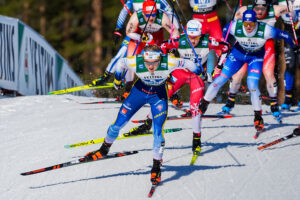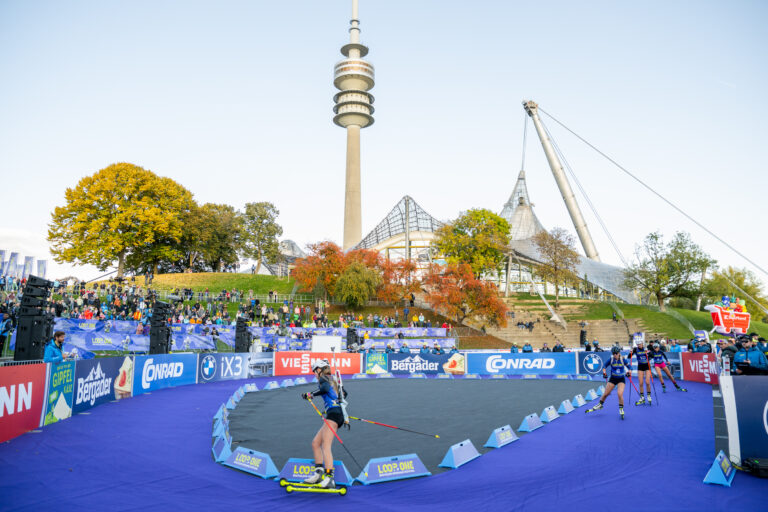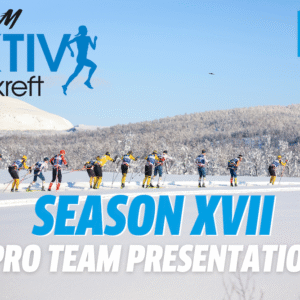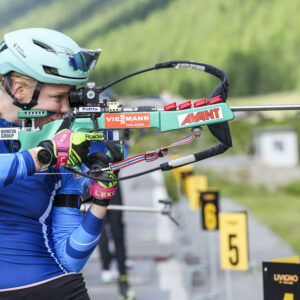Optimal nutrition for athletes is the path to success
Endurance sport requires more than just physical fitness for peak performance. Proper nutrition is critical to achieving peak performance and maintaining endurance in long and demanding competitions.
In this article from Maastohiihto.com, we look at what endurance athletes should eat and why, how to improve their fat metabolism, the correct intake of carbohydrates during training and competition, which foods to avoid, and the benefits and pitfalls of supplements.
Proteins – enablers of muscle endurance and recovery
Protein is a versatile and essential nutrient in the diet of endurance athletes. They are the building blocks of muscle and help repair muscle tissue, which is particularly important during intense training and competition. Protein also helps to reduce muscle breakdown during long periods of exercise and aids recovery after hard training.
Some of the best sources of protein include the following foods:
- Chicken breast: provides a high-quality meat protein that is low in fat and easily digestible.
- Fish: especially fatty fish such as salmon and sardines, contain omega-3 fatty acids suitable for inflammation control and heart health.
- Legumes: chickpeas, beans, and lentils are good plant protein sources and contain fiber and other nutrients.
- Dairy products: yogurt and cheese curds are good sources of protein and probiotics that can support digestive health. Dairy products are not suitable for people with lactose intolerance and can also cause digestive problems for other people, so be careful with dairy products.
Carbohydrates: the number one source of energy
Carbohydrates are the primary energy source for endurance athletes and are needed during training and competition. Glycogen, which is stored in the muscles and liver, fuels long runs. Endurance athletes should pay particular attention to carbohydrate intake before and after exercise.
Multi-chain carbohydrates are recommended as they release energy steadily and sustainably. Such carbohydrates include:
- Wholegrain cereals like oats, brown rice, and wholegrain pasta.
- Vegetables: especially root vegetables such as sweet potatoes and carrots are good sources of carbohydrates.
- Fruits: bananas, oranges, and berries provide fast-absorbing carbohydrates.
Unlike glucose, fructose, or fruit sugar, is broken down in humans’ liver and small intestine. This is why it is often added to gels to boost energy absorption in competitive situations. The absorption of pure fructose in the intestine is highly individual. Some people are unable to absorb 30-40 grams of fructose fully. Overconsumption of fructose can cause fatty deposits in the internal organs, which in turn cause inflammation, metabolic disorders, type 2 diabetes, and heart disease.
In general, carbohydrates such as sports drinks or energy gels should also be consumed during exercise to keep energy levels high during long and demanding workouts.
However, care should be taken when using carbohydrates so that the body is not taught to consume carbohydrates continuously. For example, it is important to get the fat metabolism working efficiently during long-distance skiing. It is, therefore, advisable to drink plain water or water fortified with trace elements on long, easy skiing. During high-intensity training, it is advisable to consume carbohydrate-rich drinks and gels to acclimate the body to competitive situations, where carbohydrate intake is essential as it is the fastest and most efficient energy source during hard work.
Trace elements, vitamins, and fiber: cornerstones of health
Trace elements and vitamins are essential for the health and performance of endurance athletes. These nutrients come from a varied diet rich in various fruits, vegetables, and nuts.
Examples of important trace elements and vitamins:
- Iron: helps transport oxygen in the body and prevents the development of anemia. Good sources of iron are whole grains, red meat, legumes, nuts, and seeds. Of course, excessive red meat intake should be avoided.
- Calcium: important for bone health and muscle function. Good sources of calcium include oats, nut, soya, or rice-based drinks and yogurts with added calcium, tofu, tahini, fish, soya, beans, dark green leafy vegetables, orange, blackcurrant, cabbage, and dairy products.
- Vitamin C: promotes collagen formation and helps wounds to heal. Foods rich in vitamin C include rose hips, sea buckthorn, strawberries, blackcurrants, citrus fruits, peppers, fresh peas, spinach, cabbage, potatoes, rutabaga, and turnips.
- Vitamin D: promotes the absorption of calcium and phosphorus, strengthening the bones. It also promotes normal immune and muscular functions. Adequate intake of vitamin D may prevent respiratory infections and may also have beneficial effects on athlete performance. The main sources of vitamin D are vitaminized dairy products, fatty fish, dietary fats, eggs, wild mushrooms, and sunlight.
- Fiber: improves digestion and helps maintain a feeling of fullness. Very good sources of fiber include flaxseed, wheat bran, dried chickpeas, lentils, sugar beet, and chia seeds.
Many athletes take vitamins and trace elements in pill form to ensure that their bodies do not become deficient in these substances during hard training and competition. A good and varied diet usually provides an adequate intake of trace elements and vitamins. Unnecessary and excessive intake of vitamins and minerals should be avoided, as excessive intake is associated with risks that can affect performance and general health.
Developing fat metabolism
The development of fat metabolism is essential for endurance athletes, especially for long-distance performances. This means the body can use fat efficiently as an energy source. This can be supported by diet and training:
- Good fats: add healthy fats such as avocados, nuts, and olive oil to your diet. They help to optimize fat metabolism.
- Aerobic exercise: regular aerobic exercise, such as long jogs, helps to improve fat metabolism.
- Timed fasting: in some cases, timed fasting can help boost fat burning, but it should be carefully planned under the guidance of a specialist.
In the past, many endurance athletes, especially skiers, tried various methods and tricks to improve their fat metabolism. One was to drink a glass of olive oil before a race or hard training session on an empty stomach, hoping it would trigger fat burning and metabolism efficiently.
Another method worth mentioning is to go for a morning run without breakfast, with only a glass of water or a cup of coffee to keep you going.
It’s not recommended to try the former, but the latter is still a good and effective way to boost your own fat metabolism. Of course, in this case, the morning walk cannot be too long or too brisk while blood sugar is still low.
Avoiding harmful foods
Certain foods should be avoided before training and competition as they can cause digestive problems or fluctuations in energy levels. Foods to avoid include:
- Heavy and fatty meals: avoid heavy meals, which can cause stomach upset and slow digestion.
- Excessive sugar: consuming sugar can lead to fluctuations in energy levels and negatively affect performance.
- Caffeine: excessive caffeine use can cause palpitations and anxiety and should be limited before a race. In ultra races, caffeine is often a good aid towards the end of the race.
Of the caffeinated drinks, energy drinks work exceptionally well for long runs if you are used to using them. At Vasaloppet, they also serve a mixture of coffee and Coca-Cola at the end of the race, and non-carbonated colas are one of the drinks that are still widely used in long-distance skiing and other endurance races.
Benefits and drawbacks of supplements
Supplements can be beneficial for endurance athletes, but there are risks associated with their use. Before using supplements, you should talk to a specialist and consider the need carefully. It is important to remember that supplements are not a substitute for a varied and healthy diet.
Some common supplements for endurance athletes include:
- Protein supplements: these can help meet daily protein needs, especially during heavy training.
- Electrolyte supplements: these can help maintain fluid balance during long periods of exercise.
- Creatine: may increase strength and performance, but its effects vary from person to person.
In a competitive situation, a lack of salt over long distances can cause cramps, and it is advisable to add salt, preferably sea salt, to sports drinks during challenging endurance events.
Avoiding unnecessary weight gain
Endurance athletes need to eat enough because hard training uses up energy. Despite this, many athletes struggle to manage their weight optimally during the competition season. Weight management is important, but it should be healthy and balanced. Extreme dieting and rapid weight loss can harm performance and health.
When it comes to weight management, it is vital to listen to your body and make changes to your diet and training sensibly.
Nutrition pitfalls
Endurance athletes should avoid the most common nutritional pitfalls. These can include under-nutrient intake, narrowing a diet or extreme diets, unrealistic weight targets, overeating, and overindulging in sweets or other stimulants.
A planned and conscious diet is key to successful endurance sports. For elite athletes, working with a nutritionist to develop a plan that meets individual needs and goals is advisable. Recreational skiers should also focus on nutrition and learn about their body’s needs and requirements. Good nutrition, combined with regular training, will help endurance athletes achieve peak performance and maintain their health in the long term.
Are you interested in traditional and long-distance skiing training? Click HERE and read more.










